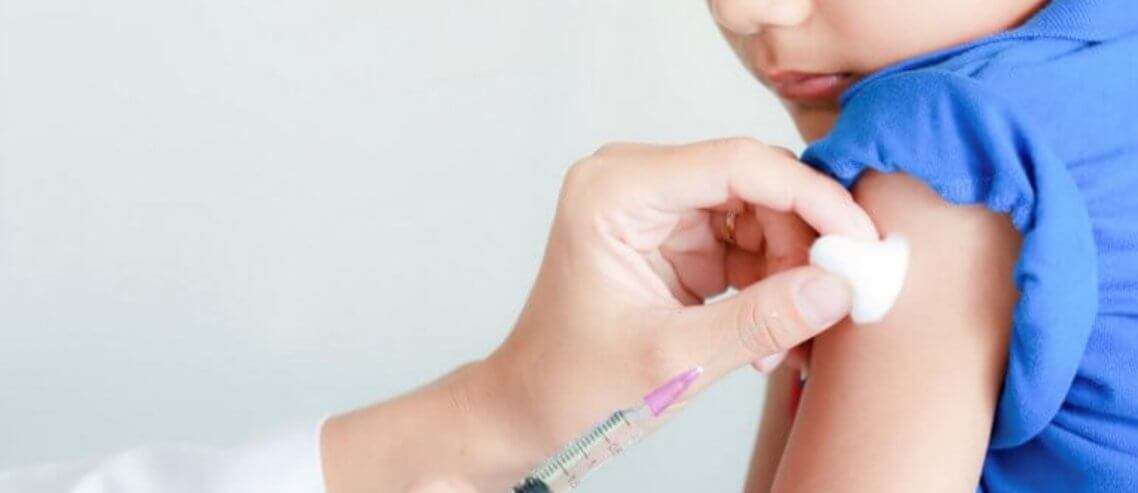Vaccines in Singapore: Protecting your child and your community
One topic in the world of medicine that has come up time and again over the past decade-plus is vaccines. With the ongoing global pandemic, the topic is more talked about than ever. WHO World Immunization Week 2021 happened earlier this year with an aim to promote the use of vaccinations worldwide.
Saving millions of lives annually, immunization is recognized as one of the most successful health interventions in the world. Even so, almost 20 million children globally do not get the vaccine they need, with many missing out on vital vaccines throughout their lives. With this in mind, Pacific Prime Singapore presents this article on the state of vaccines in Singapore and which ones that people of any age should be sure to get.
Do vaccines work?
A vaccine works by introducing a weakened or inactivated (killed) form of a pathogen into the body, which then acquires immunity from the disease as the body quickly learns how to destroy it. However, there is quite a bit of debate regarding vaccine efficacy in Singapore, and whether they are working as they should for the public at large.
Over the past couple of decades, a movement has gained popularity that may have led to deadly outcomes for numerous people. Anti-vaccination movements, which have been around since before vaccines were even developed, have made headlines with assertions that vaccines are a cause for concerns over health, even going so far as to suggest that they may cause autism in children.
While these theories have yet to be borne out by data, the data has shown that those who have chosen not to immunize their children have essentially caused outbreaks of diseases in developed countries that were previously dormant to the point that they were barely thought of.
For example, while measles was thought to be wiped out in the United States since the year 2000, unvaccinated children have lead to a resurgence of the disease. 1,215 cases of measles were confirmed across 30 states from January to August 2019. The WHO named “vaccine hesitancy” one of the 10 greatest health threats of that year.
In response to this, some countries – like Australia – are now banning unvaccinated children from attending schools, as they are deemed to be a threat to the safety of others.
Vaccine efficacy
One way to show the effectiveness of vaccines is to highlight the difference in cases of some diseases before and after their vaccine was introduced.
These days we also now have the ability to show that vaccines in Singapore do work by way of people deciding to stop immunizing their children. As doctors are reporting seeing more and more parents who are declining immunization of their children, the news has been reporting outbreaks of mumps, measles, and whooping cough in countries like the United Kingdom and the United States that had previously seemed to have a handle on the diseases to the point that they were once practically eradicated.
In Singapore, 75% of the 43 measles cases in the first quarter of 2019 were from unvaccinated individuals. To many, it is clear that there is a link between outbreaks and the number of people who are vaccinated when it comes to this disease.
Recommended vaccines for children in Singapore
To be sure, if you are a parent or legal guardian in Singapore, you are required by law to vaccinate your child against measles and diphtheria, and proof of vaccination is needed merely to enroll your child in school here. Furthermore, penalties for non-compliance with this rule are set to possibly become harsher in the near future.
Like most every other country, Singapore has a suggested schedule of immunizations that should be administered to every person from birth. In this way, infants are protected from the most dangerous and contagious of diseases, as their immune systems are not yet prepared to battle such illnesses. The child vaccination schedule in Singapore goes like this:
From birth
- Tuberculosis
- Hepatitis B (HepB) – First dose (D1)
At 1 month of age
- HepB – Second dose (D2)
At 3 months of age
- Diphtheria, tetanus, and pertussis (DTaP) – D1
- Poliovirus (IPV) – D1
- Haemophilus influenzae type b (Hib) – D1
- Pneumococcal disease (PCV) – D1
At 4 months of age
- DTaP – D2
- IPV – D2
- Hib – D2
At 5 months of age
- DTap – D3
- IPV – D3
- HepB – D3
- Hib – D3
- PCV – D2
At 1 year of age
- Measles, mumps, and rubella (MMR) – D1
- PCV – Booster 1 (B1)
At 15 months of age
- MMR – D2
At 18 months of age
- DTap – B1
- IPV – B1
- Hib – B1
At 9 years of age
At 10-11 years of age
- Tetanus booster
- Oral polio vaccine
Of course, many of these vaccines require a cycle of injections that are administered in multiple phases over a period of time. Others require a booster shot every now and again in order to maintain a vaccination’s effectiveness.
While Singapore has laid out a schedule for immunizing newborns, expats in the city-state may think about following the schedule laid out by their home country. Every country can potentially have different guidelines when it comes to immunization, so have a look and see if your preferred country has a schedule that you think seems to be a better fit for your family. Then consult your doctor to see if they agree and can accommodate your suggested schedule.
Sourcing quality of vaccines in Singapore
Another concern for those obtaining vaccines is their quality. Many have read the stories from China about fake vaccines being distributed among a network of dealers and doctors, or how it was found that millions of vials of vaccines were improperly stored, thereby potentially rendering them ineffective. This has led to a lack of trust in vaccines in China, and people now want to ensure that the vaccines they receive are obtained either through direct import from abroad or from one of the country’s high-quality private hospitals.
So is this a concern in Singapore? In reality, there have been no reports in recent years of counterfeit or ineffective vaccines in Singapore having been administered to anyone here. Rest assured that the Ministry of Health is diligent in ensuring that vaccines available in Singapore meet their safety, efficacy, and quality requirements. The vaccines in the city-state are closely monitored for side effects and fully licensed within the territory.
Vaccines and insurance
For expats, in particular, the cost of vaccination in Singapore can be pricey. This is because many expats are denied access to the city’s public healthcare system and must rely on costly private medical facilities for their immunizations. At these facilities, a single vaccination could cost you hundreds of dollars. The best way to address these costs is to obtain a comprehensive private medical insurance policy for your family that includes benefits for vaccines.
Whether you want to find out if your current plan covers COVID-19 vaccination for children in Singapore or are looking for the best health insurance in Singapore, look no further than Pacific Prime Singapore. We compare plans to ensure you get the right family health insurance in Singapore, or any other type of insurance you’re after. Contact us for impartial advice and provide you with a free plan comparison and quote today.
- Your Guide to Singapore Work Permits, S Pass, and Employment Pass (Updated 2024) - March 18, 2024
- Dermatological Care and Your Private Health Insurance in Singapore - December 1, 2023
- Thalassemia in Singapore: Everything You Need to Know - November 10, 2023






Comments
Comments for this post are closed.
We'll notify you
when our team replies!